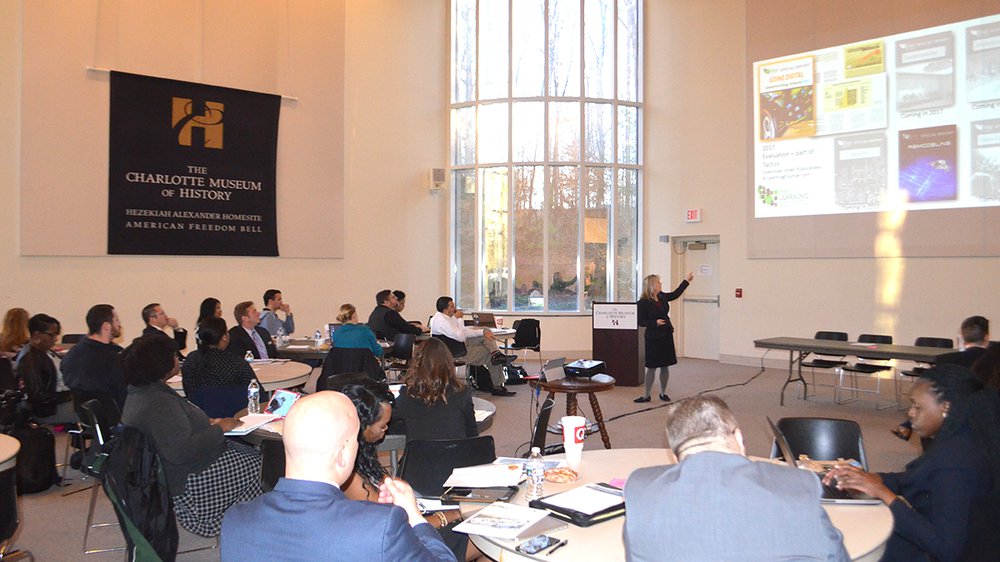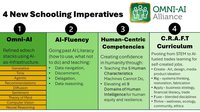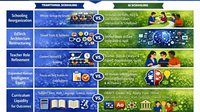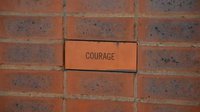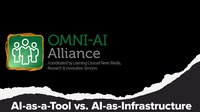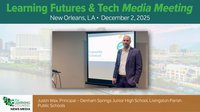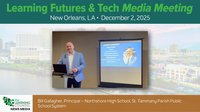Across the nation educators from leadership levels on down to classroom teachers are crashing into the digital shift and its many facets and challenges. That was the subject of the annual Charlotte Digital Curriculum Sustainability Discussion held by the Learning Counsel at the Charlotte History Museum in late January.
The room included leaders, teachers and many teams who attended together to be able to collaborate and ensure all stayed on the same page as they gathered information for their transition. Schools included: Union County Public Schools, Charlotte-Mecklenburg Schools, Scotland County Schools, St. Patrick Catholic School, Stanly County Schools, Wake County Schools, Sugar Creek County Schools, North Carolina Dept of Public Instruction, Stewart Creek High School, Rowan-Salisbury Public Schools, Clarendon School District Two, Charlotte Catholic High School and Accelerated Learning Solutions and Teach for America.
The day began with a detailed national review of the state of transition from CEO and Publisher of the Learning Counsel, LeiLani Cauthen. She shared a broad range of analytics and data, as well as first-hand experience from talking with many leaders from all levels and sizes of schools and districts.
“The K12 education market is in the ‘eye of the storm’ of adoption and use of digital curriculum,” she stated. “We are amid all types of confusion as to how to choose digital resources or how to build them for free. Teachers are going in various directions doing all sorts of tactics randomly, sometimes at odds with the plans of district administration. Teachers are spending way too many hours planning digital lessons and lacking professional development support—the percentage still stands at 25% of teacher time is spent searching and preparing digital lessons which is having direct effects on teacher shortages and burn out. The Learning Counsel is focused on these issues and stands here to give you the b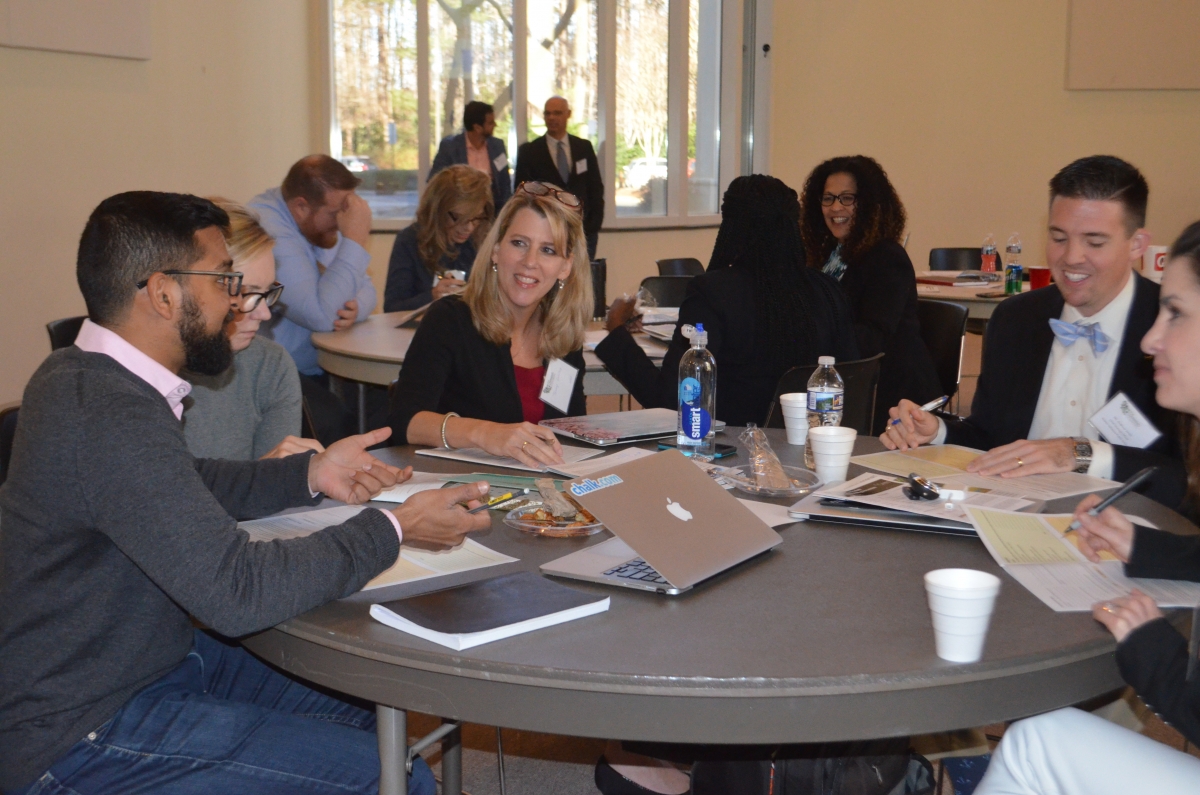
The day included administrative exercises in planning, budgeting and resource management as well as presentations from local schools on device and software initiatives.
Photo Gallery: Charlotte Digital Curriculum Sustainability Discussion
The executive panel was a highlight of the day and included esteemed friends, Mr. Ben Davis, Chief Technology Officer of Stanly County Schools; Yanisha Mann, Instructional Improvement System Consultant at the NC Dept of Public Instruction; and, Mr. William Breedlove, Director of Secondary Education of Union County Public Schools. They shared examples of device implementations and shifting instruction to digital curriculum in their districts.
Mr. Davis in Stanly County, a district about 50 miles east of Charlotte is a more rural area. The infusion of technology into the classrooms has started out slow but is now quickly picking up pace, driven by student use and need. “I originally considered that our runway to full digital curriculum transition with a would take 7-10 years in our area,” stated Mr. Davis. “But what I’m seeing now is students pushing the teachers to change their pedagogy and using the devices as the main tools instead of textbooks. On that count, the silos that are Tech and Curriculum have had to open up and begin working together more and more now. I still think it will take a couple years, but users are pushing us.”
Dr. David Kafitz, moderator of the panel, questioned further about how their districts were evolving with the changes and are they systemically adjusting the way we’ve traditionally considered school.
Union County has had to adjust their policies and make systemic shifts to address the changes in teaching and learning and what today’s digital natives need. “We’ve adopted a policy of ‘If it’s good for our students, good for our teachers and ethical, we will evolve with it to make it work,’” stated Mr. Breedlove from Union County. “We have had to become much more flexible and supportive of the students—tailoring how we are delivering teaching to the students. This is possible because of the tech, Wi-Fi and various systems we now have in place. We have 56 courses in our Canvas LMS and students can be online learners from home if that’s what’s best for them while still being part of the school district. These students have live teachers who visit them at home to make sure they are doing well at least once a week. This also makes us look at budgeting and where we’re putting our money.”
PodCast: Charlotte Panel Discussion
click to hear the entire panel discussion
Ms. Yanisha Mann, Instructional Improvement System Consultant at the NC Dept of Public Instruction was a school teacher and 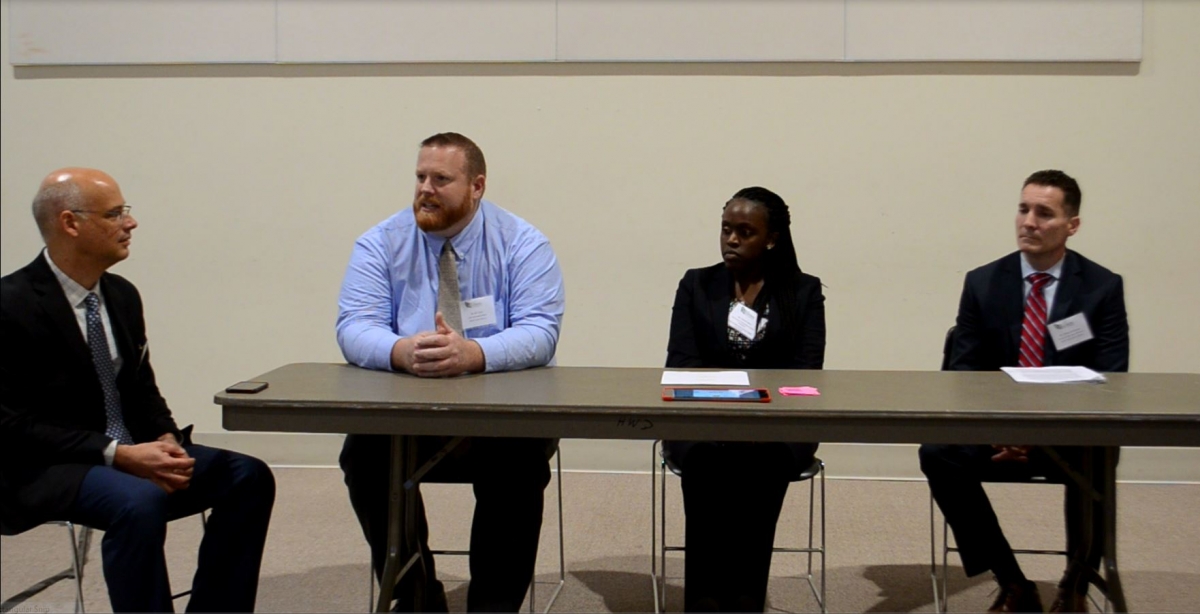
The conversation also dove into the point of appropriate levels of professional development for teachers so they are supported and retrained as necessary for digital learning. “We are losing teachers—I think all of us are—and we don’t want the students to suffer,” stated Mr. Breedlove. “So, we are working heavily on teacher PD so they are empowered to shift and feel confident with new instructional practices.”
The Learning Counsel looks forward to seeing our colleagues and friends in Charlotte again next year and learning how they’ve further transformed their schools and districts to support students, teachers and work with the community at large.

